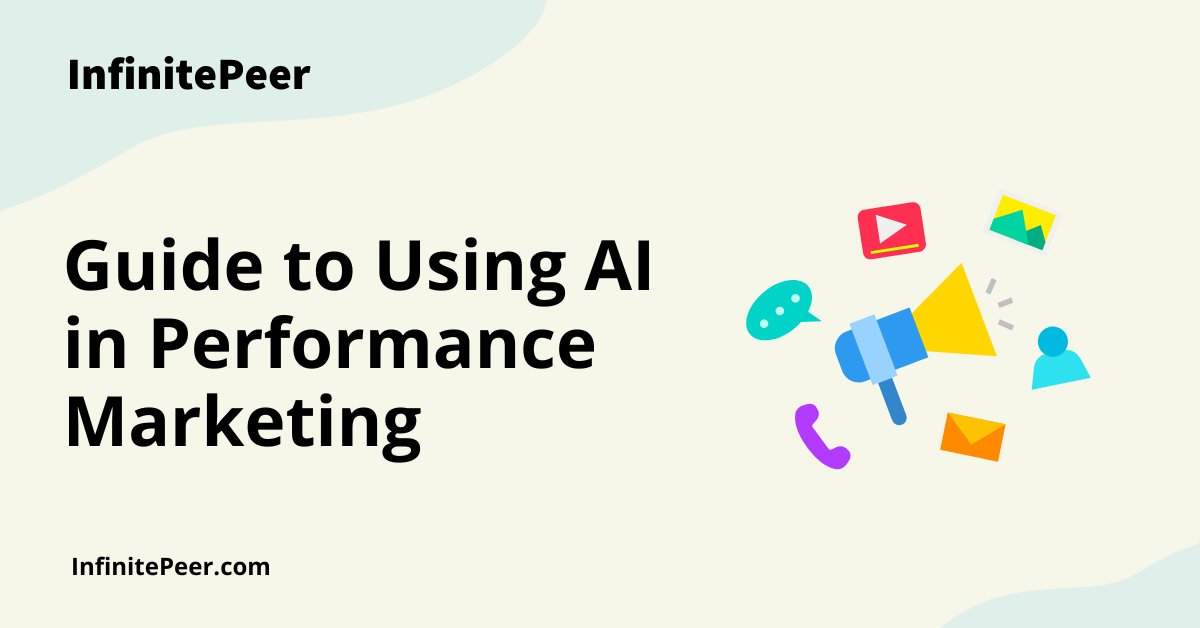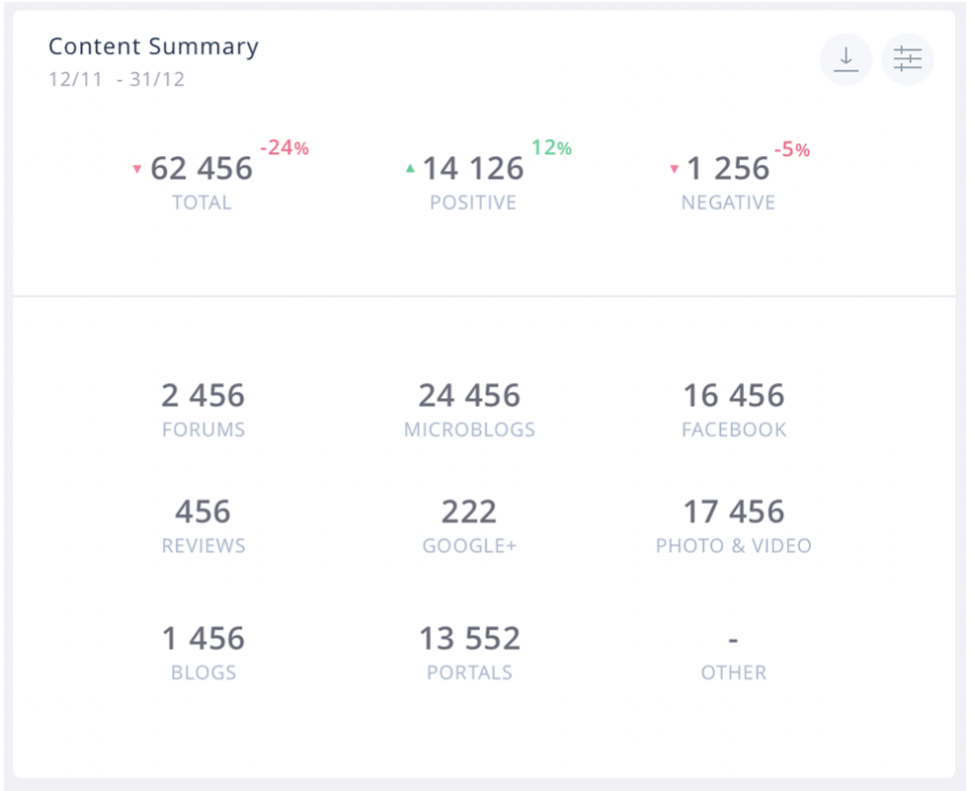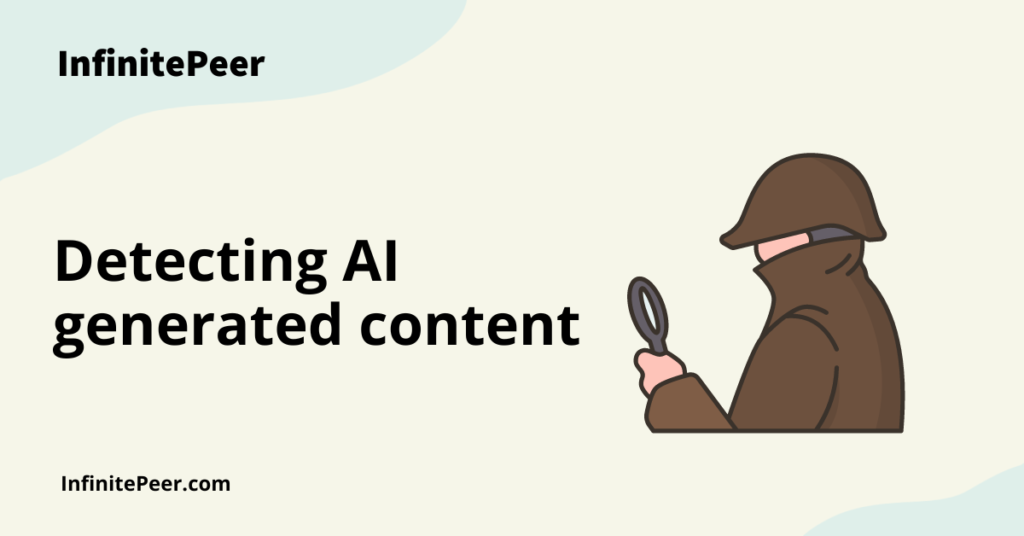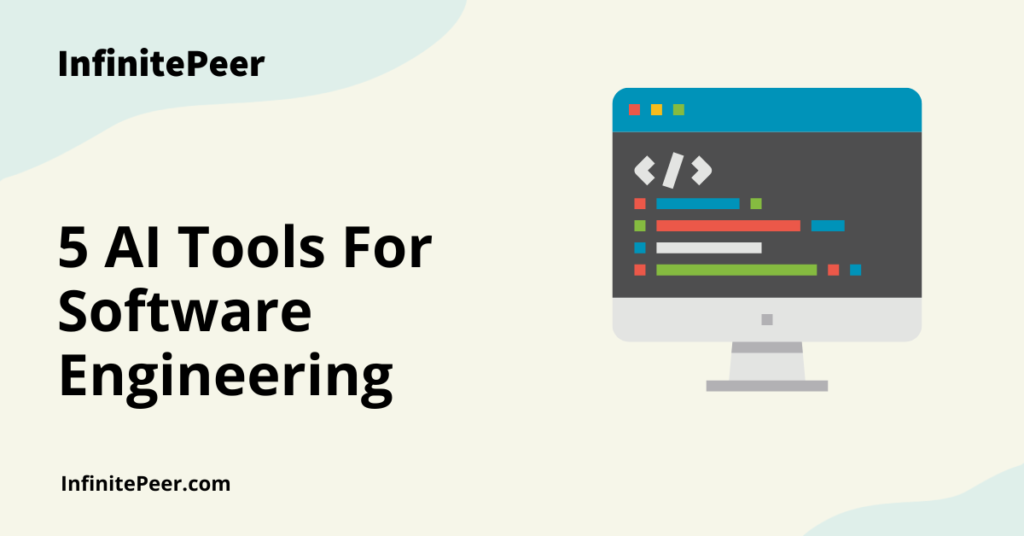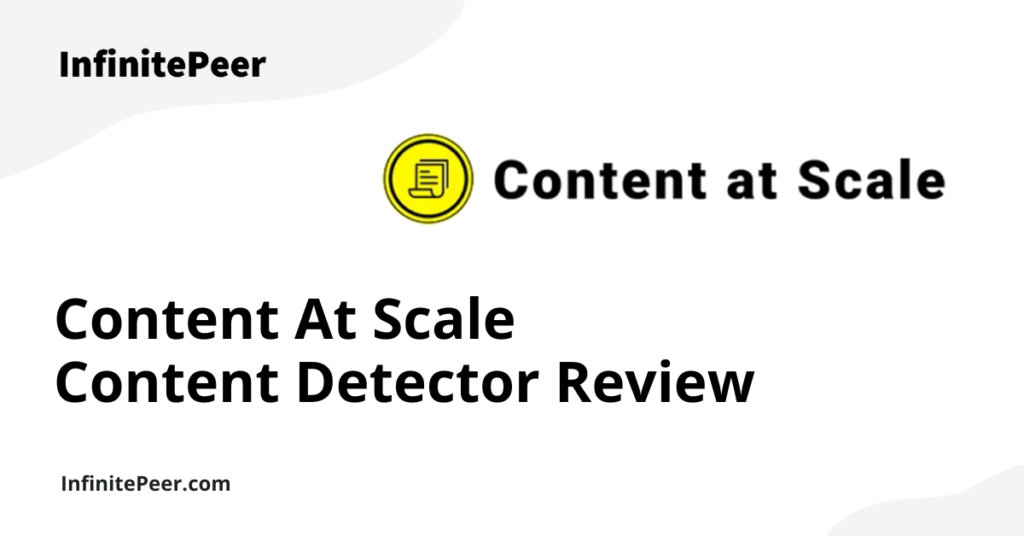If you are a business owner or marketing professional, then chances are you are already leveraging performance marketing.
Performance marketing allows you to assess and optimize every aspect of your general marketing strategy across all the channels you use. It means wider reach, higher ROI, and better sales for your brand. Sounds excellent, right?
Guess what – you can maximize the benefits of performance marketing by boosting it with Artificial Intelligence. In this guide, we will tell you all about AI in performance marketing and show you how your business can use it to up your marketing game.
Performance Marketing 101
Marketing is such a broad area – new branches, sub-types, and terms emerge every day. The quickly changing marketing landscape can get really confusing. So for the sake of clarity, let’s nail down the definition of performance marketing and list its main aspects before we look at how to leverage AI in this domain.
What is performance marketing?
People often confuse performance marketing with digital marketing, but the two are not the same.
- Digital marketing is a more general term that includes the use of digital channels to market products/services to consumers.
- Performance marketing is a digital marketing strategy that concentrates on achieving specific marketing KPIs (click-through rate, engagement rate, number of leads, etc.).
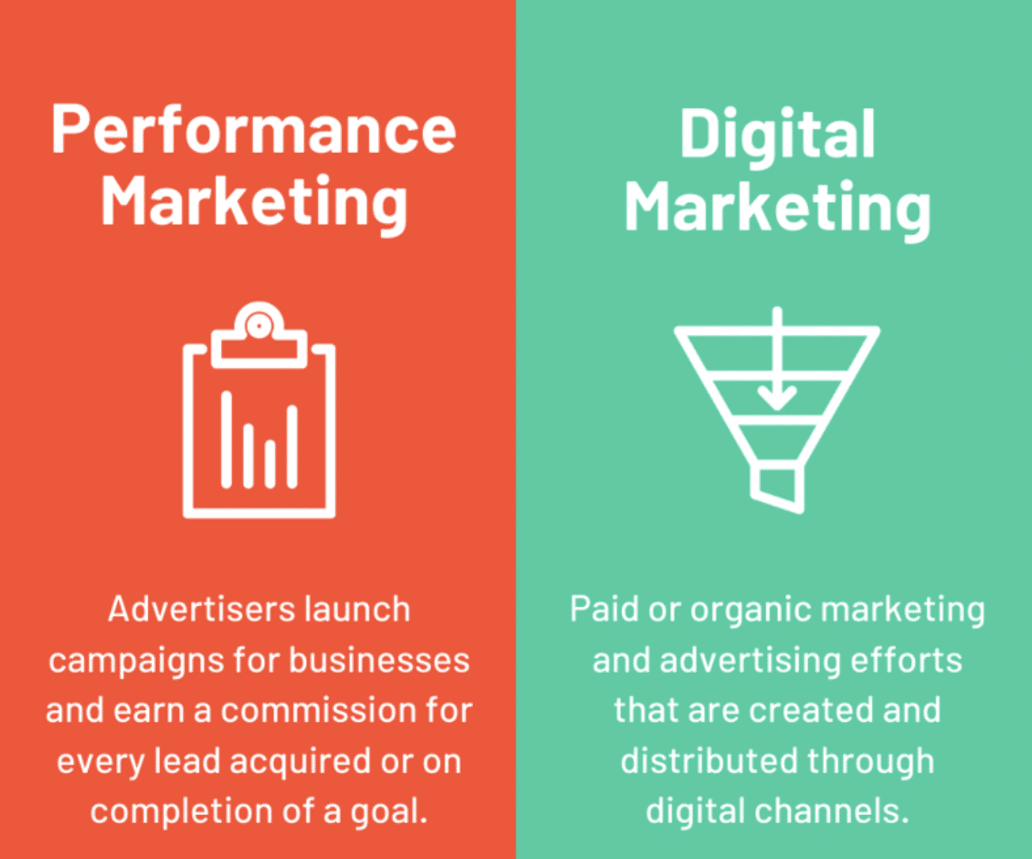
In other words, performance marketing is results-driven. It is a more short-term strategy optimal for companies that want to scale their marketing efforts. As a business, you only pay for specific actions or results that your campaign, ad, or tactic has achieved.
- For example, you’ve launched an influencer marketing campaign and the influencer working with you receives a commission whenever a social media user uses their unique link to access your landing page and purchase an item. The influencer is paid based on how well their campaign performs.
What are the major types of performance marketing?
It’s hard to strictly define the types of performance marketing. The lines are often blurry, especially when it comes to measuring the results of marketing efforts. However, marketers highlight several kinds of performance marketing that generate the most value for business growth:
Influencer marketing
Influencer marketing focuses on collaborations between brands and influencers. Businesses can leverage influencers’ large and devoted follower communities to promote their products, expand reach, and boost social proof, among other things. An absolute majority of marketers – 93% to be exact – have reported using influencers in their marketing strategy.
Native advertising
Native ads are a non-intrusive type of advertising that combines valuable content with promotional intent. What you get as a result is an ad that looks and feels natural to viewers because it organically fits within a given digital platform. In other words, native ads don’t come across as too ‘salesy’. Besides, they are very effective: native ads create an 18% increase in buying intent.
Sponsored content
Sponsored content is usually created by brand ambassadors, affiliates, or influencers. This type of content normally comes with a disclaimer that explicitly shows what brand supports the content for promotional purposes. Sponsored content can take endless forms from Facebook posts and tweets to paid articles and infographics.
Search engine marketing (SEM)
Through SEM, businesses can use paid ads that appear on search engine results pages (SERP) to drive organic traffic to their web pages. These ads use top-ranked keywords and other SEO parameters to reach target audiences and achieve high click-through rates. SEM usually focuses on Google which still dominates search engine usage with a whopping 85% global market share.
Social media marketing (SMM)
SMM focuses on the use of social media platforms for promotional purposes. By promoting your brand on the right social media platform, you can reach, engage, and convert your target audience into real customers through ads, influencer collaborations, organic content, and many other marketing tactics.
How to Use AI in Performance Marketing?
No matter what type of performance marketing you decide to incorporate into your general marketing strategy, artificial intelligence can boost your campaign quality and results. Consider these 4 advanced yet easily accessible ways to use AI in performance marketing.
Customer profiling
Customer profiling is an integral part of a successful marketing strategy. Modern AI solutions help you collect and process customer data to give you a clear picture of the customer persona that’s most likely to interact with your product or service.
- When it comes to online channels, AI profiling tools gather consumer data through cookies, form submissions, and online behavior tracking. This data is then used to create unique customer types relevant to your business. This allows you to identify your target customers’ demographic, behavior patterns, needs, and interests. This knowledge is extremely valuable – it helps you craft the best marketing strategy to effectively interact with target customers.
Pro-tip: you can also use AI for offline customer profiling. Modern AI-based video analytics tools can use CCTV cameras in offline stores to collect such data as customers’ gender, age, store navigation patterns, and buying choices. However, this type of profiling is more costly and is only relevant to companies that operate brick-and-mortar stores.
Use Case: Blueshift
Blueshift is a great AI solution for marketers who want to know their target audience inside and out. No matter the scale or complexity of your demand, Blueshift’s machine learning algorithms process endless amounts of customer data to:
- create accurate customer profiles that are constantly adjusted and updated;
- segment your audience to target each customer group effectively based on behavior patterns and buying preferences;
- personalize marketing/ad campaigns based on customer data and segmentation.
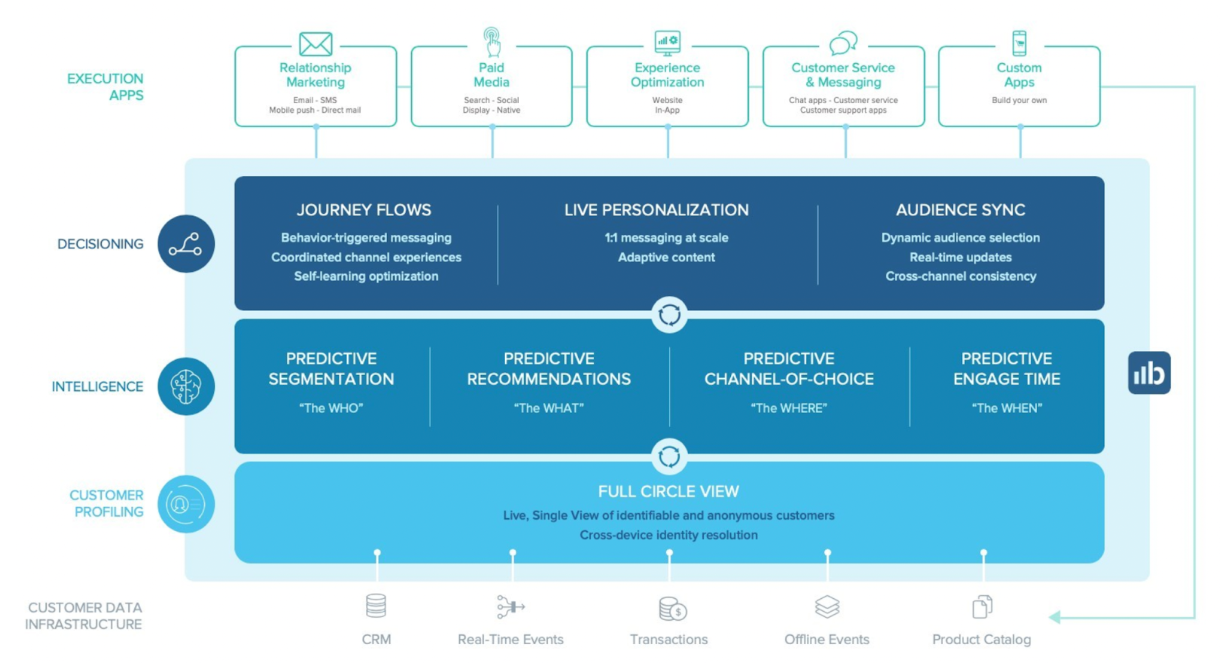
CarParts.com has leveraged Blueshift’s sophisticated customer data infrastructure to improve personalization and increase customer engagement by 400%. At the same time, automating customer profiling has saved the brand more than 50 working hours per week.
Customer behavior analysis and predictive analytics
Accurate customer behavior analysis is crucial to ensuring a high-quality customer experience. Modern AI marketing tools can ace this task by providing deep CRM analytics in real-time.
- Your marketing team can use this data to adjust your marketing campaigns on the go to keep your customers engaged through the entirety of the buyer’s journey.
On top of that, modern AI tools provide predictive analytics that allows your business to:
- spot new customer segments and promising markets;
- anticipate trends in product/service demand;
- optimize your pricing policy depending on relevant market changes and tendencies.
Use Case: Zoomph
Zoomph uses predictive analytics to assess customer behavior and guide valuable interactions between your brand and your customers.
- Zoomph can analyze what type of celebrities and influencers your customers tend to interact with. These insights help you craft an excellent influencer marketing campaign;
- The tool also determines the core interests of your target audience to predict which marketing tactics will resonate with your customers more effectively;
- Based on Zoomph’s analytics, you can decide which product/service will perform best with your customer base.
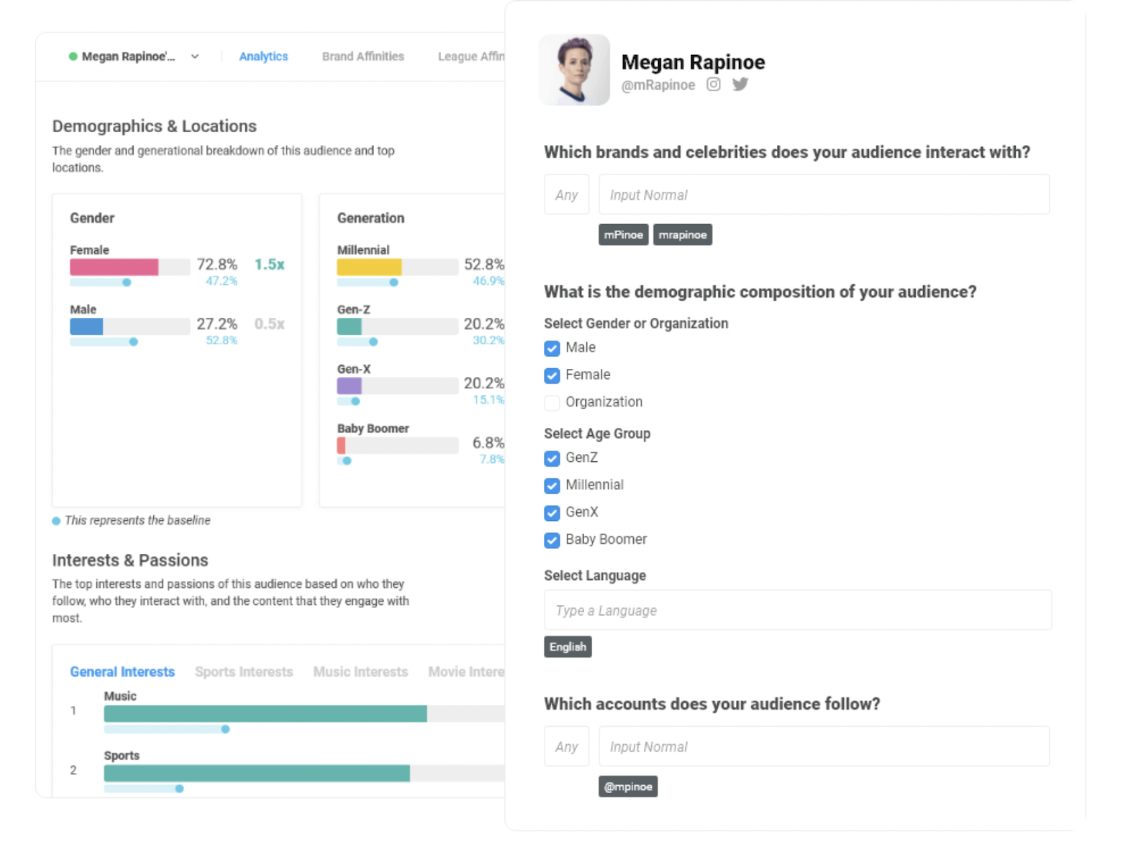
Pro-tip: you can also use Zoomph to analyze the social media channel performance of your customer base to improve the value of social media content your brand provides to your audiences.
Strategic audience management for marketing spend optimization
Marketing spend optimization is one of the key responsibilities of a performance marketer. If you’re approaching your marketing effort without a clear understanding of proper audience management, you risk draining your budget while missing the target.
AI algorithms allow your business to focus marketing spending on high-value activities to produce more efficient and cost-effective marketing. In other words, AI becomes an effective campaign manager that tracks marketing campaign progress round the clock to make sure you spend money on the right efforts for the right audience:
- AI can select the most profitable marketing channels with your target customer in mind;
- It intelligently adjusts your budget to current and future marketing efforts;
- It can optimize lead generation;
- It automates lower-value marketing tasks to save your marketing team time and money.
Use Case: Adext AI
Adext AI enhances your performance marketing efforts by maximizing budget efficiency. Whether it’s an influencer marketing campaign, an ad campaign, or another marketing initiative, this solution monitors and analyzes campaign performance to optimize your marketing spend on the go.
- You can define the budget and optimization period for every campaign you’re running;
- Identify and target the most profitable audience segments;
- Concentrate on the marketing KPIs that drive the best results for your brand;
- Control budget efficiency every step of the way while automating campaign management.
Pro-tip: Adext is an especially efficient AI tool if you’re running an e-commerce business:
Social Listening
Social listening is a practice that includes tracking social media for mentions of your brand, your products/services, and the specific keywords relevant to your business. You can analyze this data to yield massive benefits for brand growth.
AI is excellent for conducting social listening. It can quickly process large amounts of data across multiple social media channels. AI-powered social listening can provide you with the following insights:
- Sentiment analysis. AI can tell you how people feel about your brand and what they are saying about it on social media;
- Crisis detection. AI tools quickly spot issues like copyright problems, and recurring customer complaints, by monitoring mentions on social media.
- Data categorization. You can see what kind of content social media users create around your brand (it is very useful for UGC collection);
- Analysis of the visual content related to your brand. This is especially relevant if you focus social listening efforts on visual-centered social media platforms like Instagram.
Use Case: SentiOne
SentiOne is an AI-powered social listening tool that shows what people think, feel, and say about your brand online.
- SentiOne analyzes various online spaces to spot brand mentions and gather narratives around your brand;
- It provides comparative brand sentiment research on your competitors;
- It creates unique keyword clouds related to your brand;
- Based on current brand sentiment, it predicts customers’ needs and gives you relevant suggestions on how to improve your marketing efforts.
Online marketing agency Luźno successfully leveraged SentiOne’s social listening features to increase social media engagement, improve customer support, and boost the quality of their Facebook and Google ads.
Benefits of Using AI in Performance Marketing
Adding AI solutions to your performance marketing tactics has multiple advantages. However, two of them are particularly prominent:
Better ROI on marketing spend
AI is an incredible driving force for higher ROI for several reasons:
- It automates mundane repetitive marketing processes and tasks to improve overall productivity;
- AI solutions (especially those focusing on customer behavior analysis and social listening) help increase customer retention rates. Statistical data shows that a customer retention rate growth of just 5% can boost business profits by at least 25%;
- AI optimizes your marketing spending.
In fact, a recent survey shows that AI is efficient at driving higher profits. 41% of B2B marketers say that AI is an outstanding tool for accelerating revenue.
Real-time analysis and quicker decision making
This is arguably the biggest advantage AI has compared to a human marketing team. The capacity to conduct real-time analytics and provide instant insights allows for flexibility and adaptivity.
- You can use customer and market data mined by AI to make informed business decisions regarding your marketing campaigns, product/service prices, and content;
- Even more importantly, you can anticipate important shifts in customer behavior, marketing trends, and other changes that have an impact on your marketing trajectory and overall business performance.
What Is the Future of AI in Performance Marketing?
Imagine you could travel into the future and take a look at your company 10 years from now. You’d know exactly what steps you need to take today to grow efficiently and avoid mistakes tomorrow. This is exactly where modern AI is headed. Enhancing predictive algorithms is probably the most significant trend in AI for performance marketing.
- Sophisticated machine learning-based AI tools will be able to process even more data around your brand. It will give you precise insights into the marketing trends you should be leveraging;
- Combined with the high levels of personalization AI provides, you can use these insights to target every customer segment with just the right ads on the right platforms, offering them the most appealing products or services. You will give your customers what they want, even before they know they want it;
- You will be able to implement appropriate performance marketing techniques to measure brand sentiment in real-time and constantly improve customer satisfaction;
- More and more marketing tasks will become automated. Your marketing team will have more room to focus on creative decisions and novel performance marketing initiatives to attract, engage, and convert consumers into paying customers.
Conclusion
Performance marketing is all about visible, measurable results. Whether you’re chasing a higher ROI, better customer retention, or more clicks on your ads, you can find the right performance marketing tactics to achieve your business goals. Throw AI into the mix and you’ll get even better results while saving money and optimizing your marketing workflow.
Performance marketing AI paves the way for:
- getting to know your customers and their attitude toward your brand;
- optimizing your marketing spend;
- predicting future digital marketing trends relevant to your brand and niche;
- crafting the right campaigns to suit your business goals – and much more.
The best thing is – you get to choose among a wide range of AI tools available on the market today. Follow the recommendations from this guide or do your own research to find the solutions that work for your brand.
